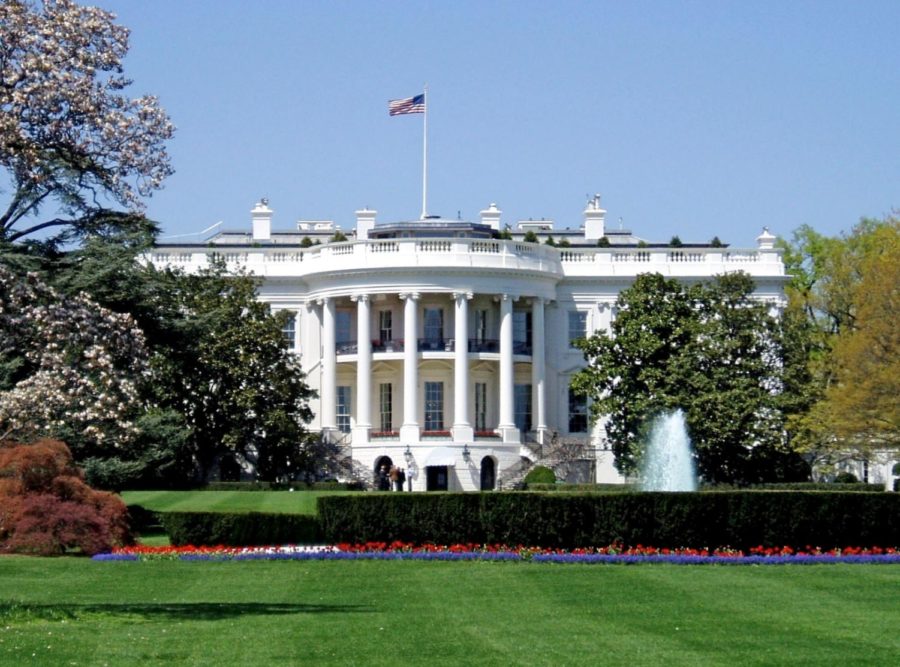The Death of Democracy: Democracy Through U.S History and How It Has Failed
An overview of the problems democracy has faced in the U.S. and how to fix them.
Credit: (Matt Wade Photography / Wikimedia Commons)
The White House is home to some of the most popular stories that political journalists cover.
Democracy at its core is a simple concept: a system of organization based on the principle of majority rule. For an organization or government to be democratic is for people to be willing to vote, and for candidates to be willing to run for election. However, this seemingly simple concept has never been simple.
Origins
The origin of democracy within the U.S. roots itself pre-revolution. When the 13 colonies were first formed, many of them formed representative legislatures alongside their settlements. Many early colonies such as Jamestown, Virginia, practiced democracy through an elected local assembly. These assemblies established by the colonists often held no real power, as ultimate authority was ultimately held by the Crown and English Parliament overseas.
In fact, early colonial democracy was extremely reminiscent of the English parliament, a general assembly voted in by borough s of the colony. During this period, voting was generally restricted to land-owning white men. This severely crippled voting participation and often resulted in only 50 to 60% of the population meeting the land requirement and only around 40-50% of the population actually voting.
When the U.S. government was formally established, several states did change their voting requirements to remove the land-owning portion, but in most states voting was still exclusive to white male landowners.
The formation of the U.S. government also brought into existence the electoral college, a system that compromised between a direct democracy and a parliamentary system. This made it so that instead of voters directly voting for the presidency, they would instead vote for electors, who would then vote for the presidency. Unfortunately, the electoral college would result in many problems regarding people’s faith in democracy.
Undemocratic
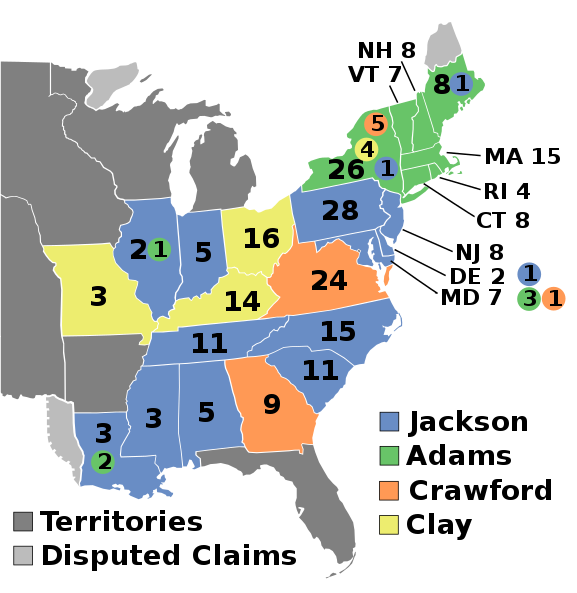
We would see the first controversy with the electoral college in 1824. The election between John Quincy Adams, Henry Clay, William Harris Crawford, and Andrew Jackson saw a situation where no candidate received the majority of votes required to win the election. This resulted in a contingent election within the House of Representatives to choose a president, which resulted in John Quincy Adams as the victor of the election. However, this was incongruent with the popular and electoral votes, which were both won by Jackson.
At the time, many Jackson supporters called this decision a “corrupt bargain,” where Adams “bribed” Henry Clay, who was the speaker of the house at the time, by offering him a position as Secretary of State, so that Clay would sway Congress to vote in favor of Adams. This resulted in Adam’s presidency facing much opposition and criticism from Jackson supporters.
In the presidential election of 1876, candidates Samuel Tilden and Rutherford B. Hayes would face a similar problem. Tilden would win the popular vote but lose the election after Congress awarded the disputed votes to Hayes. Though this outcome did not create as much of an uproar as the election of 1824, it was still detrimental to the general opinion of democracy within the U.S.
Suffrage
Alongside from the problems of the electoral college, there was the major problem of suffrage and voter disenfranchisement. Four years after the Civil War, the 15th amendment was added to the Constitution, stating that “The right of citizens of the United States to vote shall not be denied or abridged by the United States or by any State on account of race, color, or previous condition of servitude,” granting most groups, primarily African Americans, the right to vote. Although the 15th amendment was enacted, many southern states added new voting restrictions or terror methods to prevent African Americans from voting. A major example of this is the Ku Klux Klan, a domestic hate group that used terror tactics to suppress black voters. Additionally, poll taxes were also used to disenfranchise voters, as many African American and poor white Americans were often unable to pay the tax. This would come to an end as later presidents would enact stricter control over the states to prevent these methods.
But despite the fact that many of these intimidation tactics were outlawed, many people still use similar tactics to discourage voting. In fact, during the 2020 election, armed men stood outside of polling booths in several states. And though they were not ‘actively’ intimidating voters, they were still an intimidating presence for many voters, harming voter turnout in those areas.
During this time, there were efforts made for women’s suffrage. Throughout the 1800’s, many women were fighting for suffrage and formed groups such as the National American Woman Suffrage Association in order to push for the right to vote. These suffrage groups would prove to be successful in many states, such as Wyoming, Utah, Colorado, and Idaho, where women would be granted the right to vote. In the 1900’s, the movement grew through the efforts of the National Woman’s Party, National American Woman’s Suffrage Association, as well as individual efforts by people such as Emma Smith Devoe. In 1920, the 19th amendment was adopted, stating that “The right of citizens of the United States to vote shall not be denied or abridged by the United States or by any State on account of sex.”
But throughout all this time, as African Americans and women received the right to vote, one group was still barred from voting: Chinese Americans. In 1875, the U.S signed the Page Act, this would prevent Chinese Americans from receiving citizenship, a major requirement for voting. For as though they cannot prevent any citizen from voting, they can still deny citizenship. This would not change when the 19th amendment was passed, nor would it change at the end of the First World War, as immigration grew. It would only be changed in 1943, as China became an ally to America in the Second World War, though immigration quotas still remained.
Watergate
Another major event that would significantly harm democracy was the Watergate Scandal, which refers to the Nixon administration’s many attempts to cover up its involvement in the 1972 break-in of the Democratic national committee headquarters at the Watergate Office Building. The break-in involved the wiretapping of offices and stealing of documents, both of which were used to aid Nixon in his re-election campaign. This resulted in an impeachment trial against Nixon and, ultimately, his resignation.
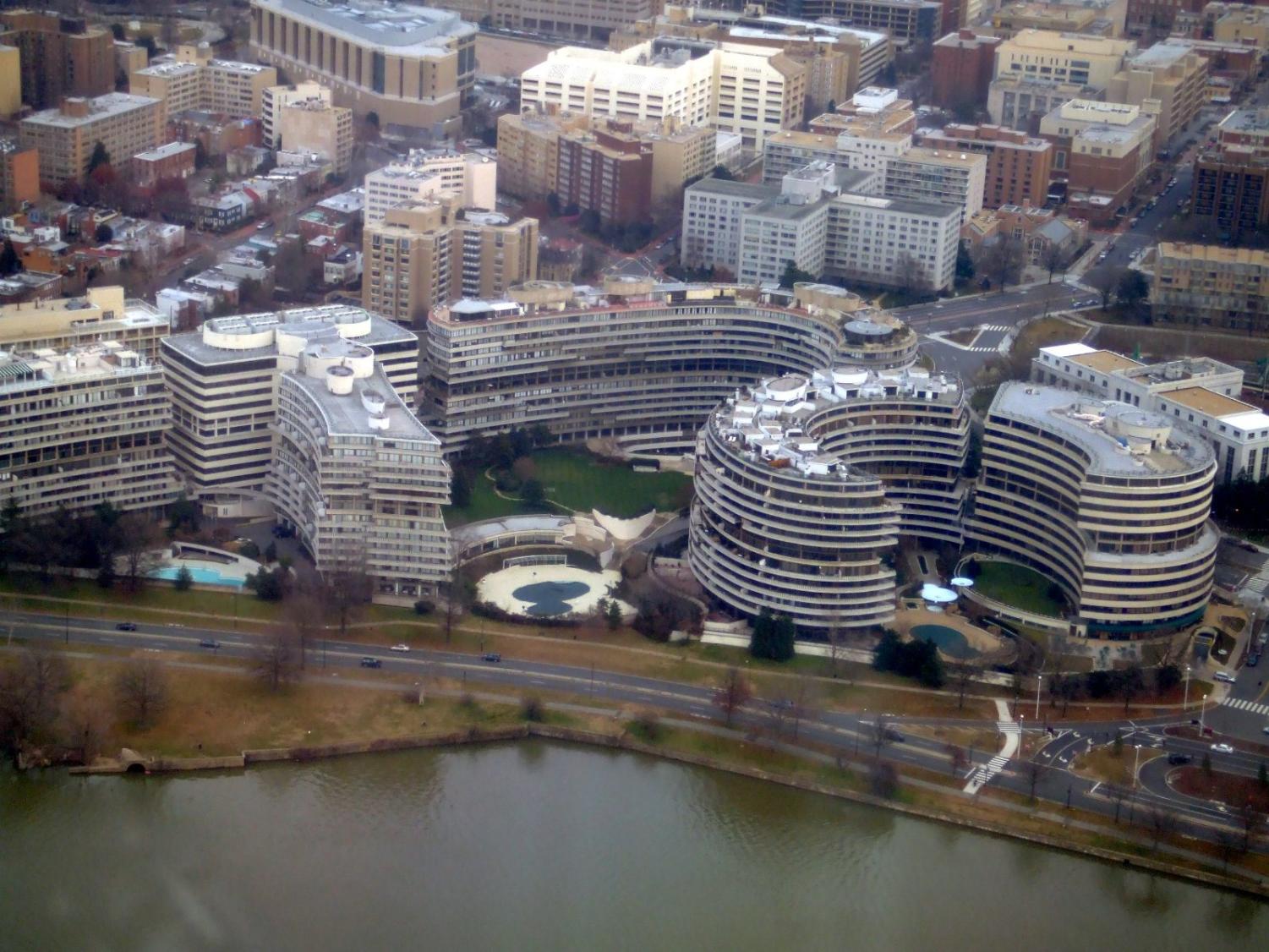
Once Gerald Ford, Nixon’s vice president, took over the White House, one of his first actions was to pardon Nixon. This resulted in public outrage, as many people believed Ford’s actions were corrupt. This belief would eventually result in Ford testifying in front of the House Judiciary Committee.
The Watergate Scandal was highly detrimental to U.S. democracy, as it severely undermined its integrity, and spurned the public against the presidential office as a whole. Unlike former events noted, there was no partisanship on this event; it is generally accepted that despite Nixon’s advancements in office, he was complicit in this crime.
Modernity
The twenty-first century has been rough for democracy in the United States. In 2000, there was a highly contested and controversial election that showed the cracks within our democracy. In 2016, we saw another highly strange election that would cause many to question the purpose of the electoral college. At the end of 2020 to the start of 2021, we saw the most concerning events regarding the future of democracy.
The first election of the century between Al Gore and George H.W. Bush was a hotly debated topic. Al Gore won most of the north-eastern states, several states in the Midwest, the states bordering the pacific, as well as Hawaii and New Mexico, while George W. Bush won the entirety of the deep south, parts of the Midwest, nearly the entirety of middle America, and the state of Alaska. But none of those mattered, as in the end, it was all decided by the state of Florida, which was narrowly awarded to George W. Bush.
The state of Florida flipped control several times as more and more votes were added to their total. Florida, when first reported by exit polls, was won by Al Gore, but when votes were actually counted, George W. Bush became the frontrunner by 2,000 votes. After a recount, this lead decreased to around 300 votes. After a few more rounds of votes recounts were done, It was noted that Bush was the official winner by around 500 votes. Gore contested this decision, but was overruled by the Supreme Court.
This was highly controversial, as many Gore supporters believed that The Supreme Court, under republican control, had unfairly denied Gore’s request for further recounts. Gore however relented, choosing not to and instead accepted defeat.
The election of 2016 was another case where the winner of the popular vote did not win the presidency. There were no disputes about the outcome of the election, but it did raise many questions on whether the electoral college adequately represents the people. The election saw Hillary Clinton losing despite having nearly 3 million more votes than her primary opponent, Donald Trump. This 3 million vote difference was one of highest for a presidential candidate who did not win the overall election.
The election of 2020 saw the highest voter turnout within the 21st century, with increases in the demographics of the voters, especially within veterans, Asian and Hispanic communities. All of this suggests that democracy is fine and that people are willing to participate in the system. However, problems arose as soon as the election ended, as former President Trump alleged voter fraud and started lawsuits in multiple states, most have been dismissed. The situation grew worse as evidence arose showing that the Trump administration was trying to defraud the system by installing republican electors instead of the electors voted for.
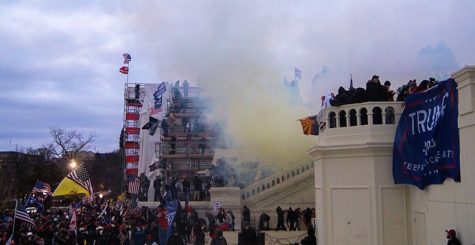
((Wikipedia via Creative Commons Attribution))
This situation culminated on January 6th, 2021, when a riot broke out at the U.S. Capitol Building. A mob of Trump supporters overwhelmed the police and swarmed the building in hopes of preventing the validation of the electoral votes that would confirm Joseph Biden as the winner of the 2020 presidential election. As rioters entered the building, many chanted death threats and carried the flag of the confederacy. Several of them also took the time to loot the offices.
The Senate was adjourned and the House recessed. Five people died during the attack, 138 police officers were injured, including 15 who were hospitalized, and 4 that committed suicide as a result of the attack.
Democracy, Postmortem
In the past 23 years, we have seen some of the most tension between the two major political parties since the Civil War, and many reasons why this is occurring is because the U.S. system of democracy is repeatedly facing the same problems throughout time.
The first problem is the Electoral system. The Electoral system, also known as the electoral college, though designed as a way to compromise between two systems, makes the voter feel less important as their votes may not matter. “I’m not a fan of the electoral college. Even if the majority of citizens vote for someone, the final outcome can still change, thereby making many votes pointless,” said Arnab Bhowmik ’23.
Democracy also has an inherent problem with absolutes. After the election of 1800, most elections were centered around two parties, and whenever a third party does enter the picture, they are often considered spoiler candidates that ruin one side’s chance of winning. Examples of this include Theodore Roosevelt in the election of 1912, and Ralph Nader in the election of 2000, and third party candidates such as Gary Johnson and Jill Stein within the 2016 election. This means that no middle ground can exist, as voters may simply “lose” their vote, forcing them to vote for the lesser of two evils instead of their preferred candidate.
Democracy, Revived.
To revitalize democracy, we need to address the aforementioned problems.
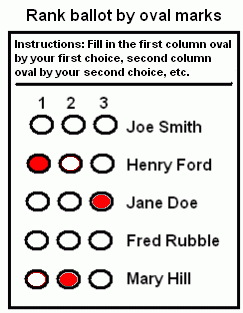
One important step in improving democracy is by restoring people’s interest. Despite the high voter turnout in 2020, there was a significant difference in turnout between the age of voters. The 2020 voter turnout where 76.0% of voters 65 – 74 years of age cast a ballot, whereas only 51.4% of voters 18 – 24 years of age did the same. A major reason for this occurring is simply the lack of resources for people to explore politics. To fix this, there should be more methods in general for students to explore their political options and to learn about political candidates that are not the two predominant parties within the U.S.
In addition, it is important for people to have more options in terms of representation. As noted previously, one reason for the lack of viable political options is through ranked choice voting, which allows voters to support multiple candidates without fear of essentially invalidating their vote. The use of ranked choice voting within local elections such as the New York City mayoral election has demonstrated that there is a reasonable application for this. Many people support this as well, with Daniel Young Kim ’24 stating that, “Ranked choice voting is extremely important as it increases the democratic nature of democracy. It allows more people to express their political views without needing to go into one of two extremes.”
The most important step of all is to soften the divides through open communication. There is an extreme divide in people’s view of the opposition. According to the Pew Research Center, a nonpartisan political think-tank based in D.C, there was a 47% gap found between those who support the governing party and those who do not when polled regarding how they feel about the handling of the Covid-19 pandemic. In another study done by the think tank, 77% of Americans said the country was now more divided than before the outbreak. A major reason for this is the divide between the two parties that has formed from the past few decades. As the political parties have become more rooted in their stances, many people on different sides have become unwilling to listen to each other.
Is democracy dead? I cannot confirm that it is. But is it on its deathbed? It soon will be. America has proudly built the foundations of its government on democracy, yet year by year, decade by decade, we see more and more tenets of democracy ripped away. Though we can say that democracy has faced toils in its past and will overcome this new wave, can we really say that in good faith? So join an advocacy group, get involved in your local elections, join and protect democracy, so that it won’t die on its judgment day.
Democracy at its core is a simple concept: a system of organization based on the principle of majority rule. For an organization or government to be democratic is for people to be willing to vote, and for candidates to be willing to run for election. However, this seemingly simple concept has never been simple.
Tiankuo Zhang is an Editor-In-Chief for 'The Science Survey.' He sees journalism as something that has withstood the test of time and finds the transcriptions...

